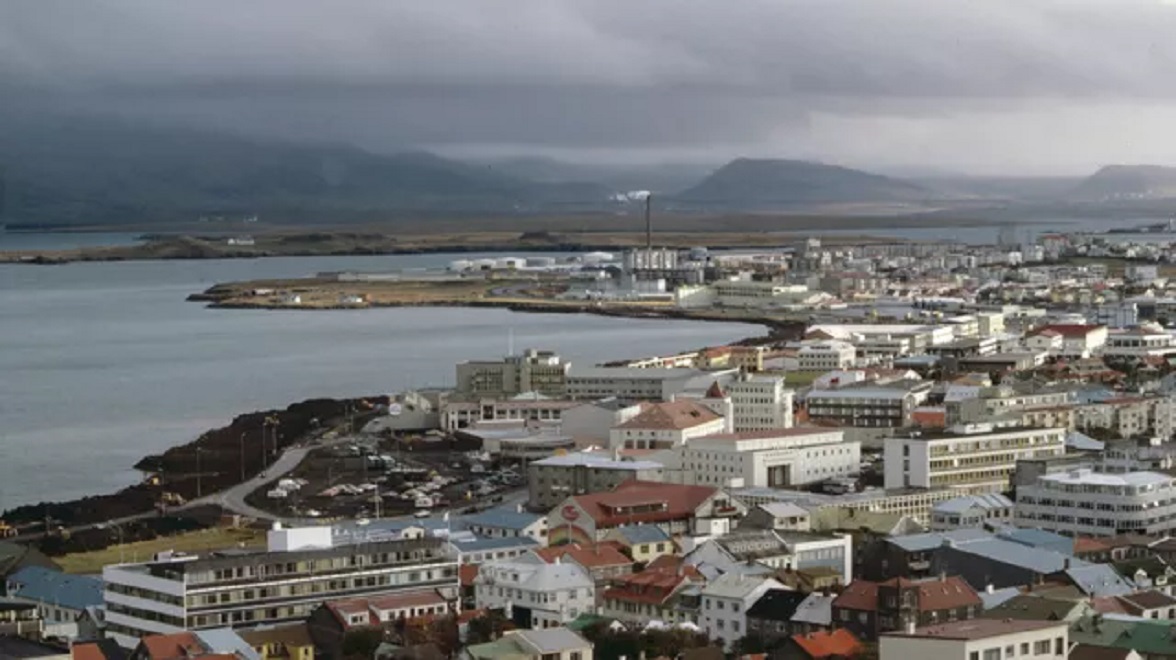Iceland’s Volcanic Eruption Unleashes Spectacular Display of Nature’s Power
An eruption of a volcano has commenced just 30 kilometers from Iceland’s capital city, Reykjavik, according to the National Meteorological Office. The lava flows are erupting near Mount Fagradalsfjall on the Reykjanes Peninsula, southwest of the capital.
Reports from Iceland Monitor indicate that ground uplift was observed in various locations on the peninsula a few days ago. Over the past week, the region has experienced up to a thousand earthquakes, with some reaching a magnitude exceeding 5.0.
The eruption has attracted both locals and tourists, as the awe-inspiring display of nature’s power unfolds. Volcanic eruptions in Iceland are not uncommon, given the island’s position atop the Mid-Atlantic Ridge, where the Eurasian and North American tectonic plates diverge. This geological activity leads to a high concentration of volcanoes on the island, making it a hotspot for volcanic enthusiasts and researchers.
The eruption site, Mount Fagradalsfjall, is known for its dormant volcanic activity over the centuries. The current eruption is classified as a fissure eruption, characterized by the release of molten lava through cracks in the Earth’s surface. Fissure eruptions are typically less explosive compared to central eruptions and offer a captivating visual spectacle for onlookers.
Although the eruption poses no immediate threat to populated areas, authorities have taken precautions to ensure public safety. Access to the eruption site has been restricted to designated areas, with authorities closely monitoring the situation. Scientists and researchers have seized this opportunity to study the eruption’s behavior, composition, and environmental impact, contributing to the broader understanding of volcanic processes.
The volcanic eruption has drawn attention from across the globe, as stunning images and videos circulate on social media platforms. The fiery glow of the lava against the dark night sky, the billowing plumes of smoke and steam, and the raw power of the molten lava cascading down the mountainside create a mesmerizing scene that captivates the imagination.
While volcanic eruptions can disrupt air travel and have potential economic implications, Iceland has well-established protocols in place to manage such situations. The country’s robust infrastructure, including advanced monitoring systems and contingency plans, ensures the safety and well-being of its residents and visitors.
Tourism in Iceland has seen a surge in recent years, with visitors flocking to witness the country’s unique geological phenomena, including its volcanoes. The eruption presents a rare opportunity for travelers to witness firsthand the raw forces that shape the Earth’s surface, adding another layer of allure to Iceland’s natural wonders.
Volcanic eruptions also have long-term effects on the environment and surrounding ecosystems. While they can cause temporary disruption and destruction, volcanic activity plays a vital role in shaping landscapes, enriching soil fertility, and creating new habitats for various species. Scientists closely monitor the eruption’s environmental impact, analyzing changes in air quality, water systems, and the local flora and fauna.
The eruption serves as a reminder of the Earth’s dynamic nature and the powerful forces that lie beneath its surface. It highlights the ongoing geological processes that have shaped our planet over millions of years and continue to shape it today. Through scientific research and monitoring, we gain valuable insights into these natural phenomena, which contribute to our understanding of Earth’s history and aid in mitigating potential risks associated with volcanic activity.
As the volcanic eruption in Iceland captivates the world’s attention, it reminds us of both the beauty and unpredictability of nature. It serves as a humbling spectacle, emphasizing our coexistence with the forces of the natural world and our responsibility to preserve and protect the fragile balance that sustains life on our planet.














































